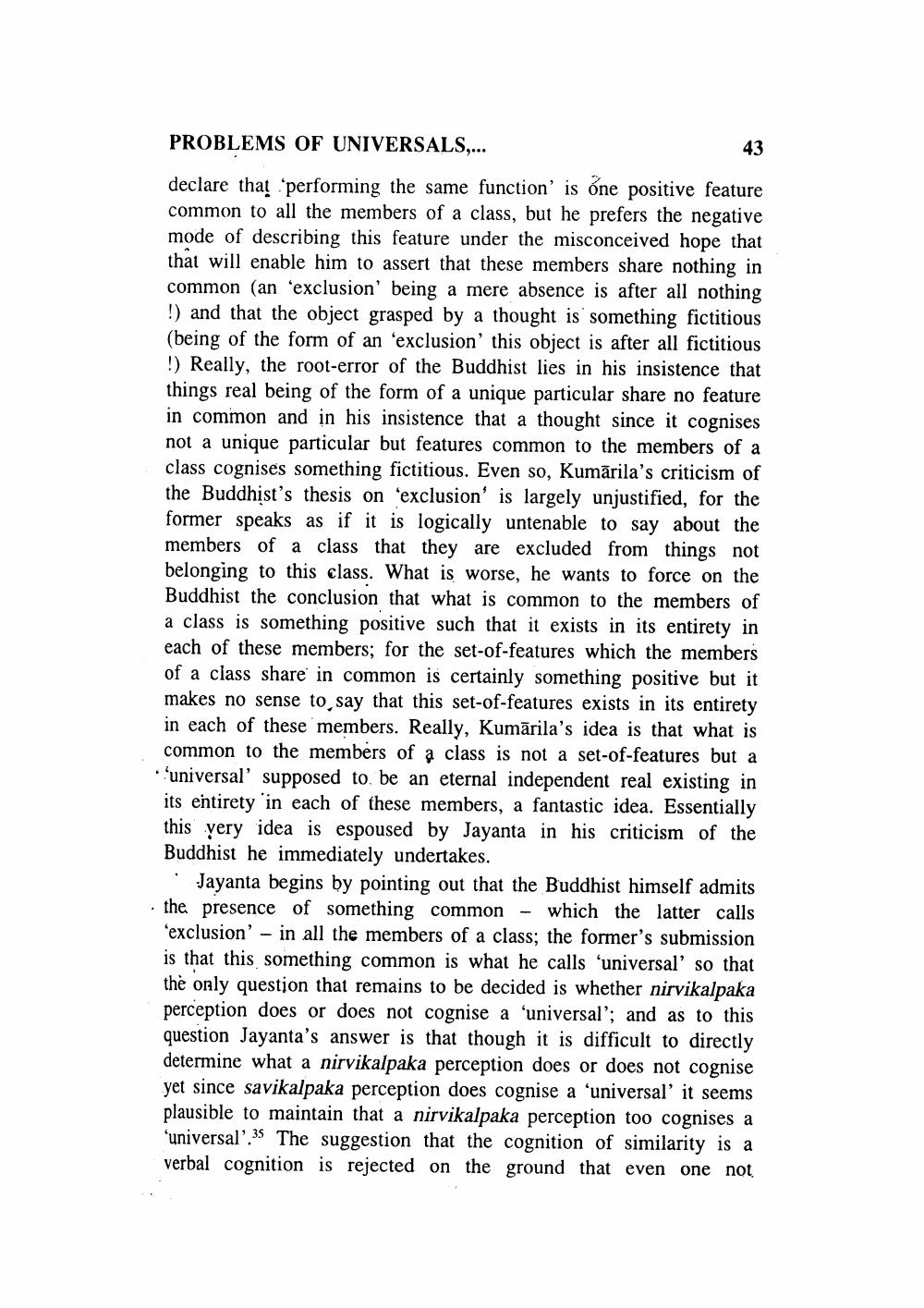________________
PROBLEMS OF UNIVERSALS,...
43
declare that performing the same function' is one positive feature common to all the members of a class, but he prefers the negative mode of describing this feature under the misconceived hope that that will enable him to assert that these members share nothing in common (an 'exclusion' being a mere absence is after all nothing !) and that the object grasped by a thought is something fictitious (being of the form of an 'exclusion this object is after all fictitious !) Really, the root-error of the Buddhist lies in his insistence that things real being of the form of a unique particular share no feature in common and in his insistence that a thought since it cognises not a unique particular but features common to the members of a class cognises something fictitious. Even so, Kumārila's criticism of the Buddhist's thesis on 'exclusion' is largely unjustified, for the former speaks as if it is logically untenable to say about the members of a class that they are excluded from things not belonging to this class. What is worse, he wants to force on the Buddhist the conclusion that what is common to the members of a class is something positive such that it exists in its entirety in each of these members; for the set-of-features which the members of a class share in common is certainly something positive but it makes no sense to say that this set-of-features exists in its entirety in each of these members. Really, Kumārila's idea is that what is common to the members of a class is not a set-of-features but a *universal' supposed to be an eternal independent real existing in
its entirety in each of these members, a fantastic idea. Essentially this yery idea is espoused by Jayanta in his criticism of the Buddhist he immediately undertakes.
Jayanta begins by pointing out that the Buddhist himself admits the presence of something common - which the latter calls 'exclusion' - in all the members of a class; the former's submission is that this something common is what he calls 'universal so that the only question that remains to be decided is whether nirvikalpaka perception does or does not cognise a universal'; and as to this question Jayanta's answer is that though it is difficult to directly determine what a nirvikalpaka perception does or does not cognise yet since savikalpaka perception does cognise a ‘universal' it seems plausible to maintain that a nirvikalpaka perception too cognises a ‘universal'.35 The suggestion that the cognition of similarity is a verbal cognition is rejected on the ground that even one not




